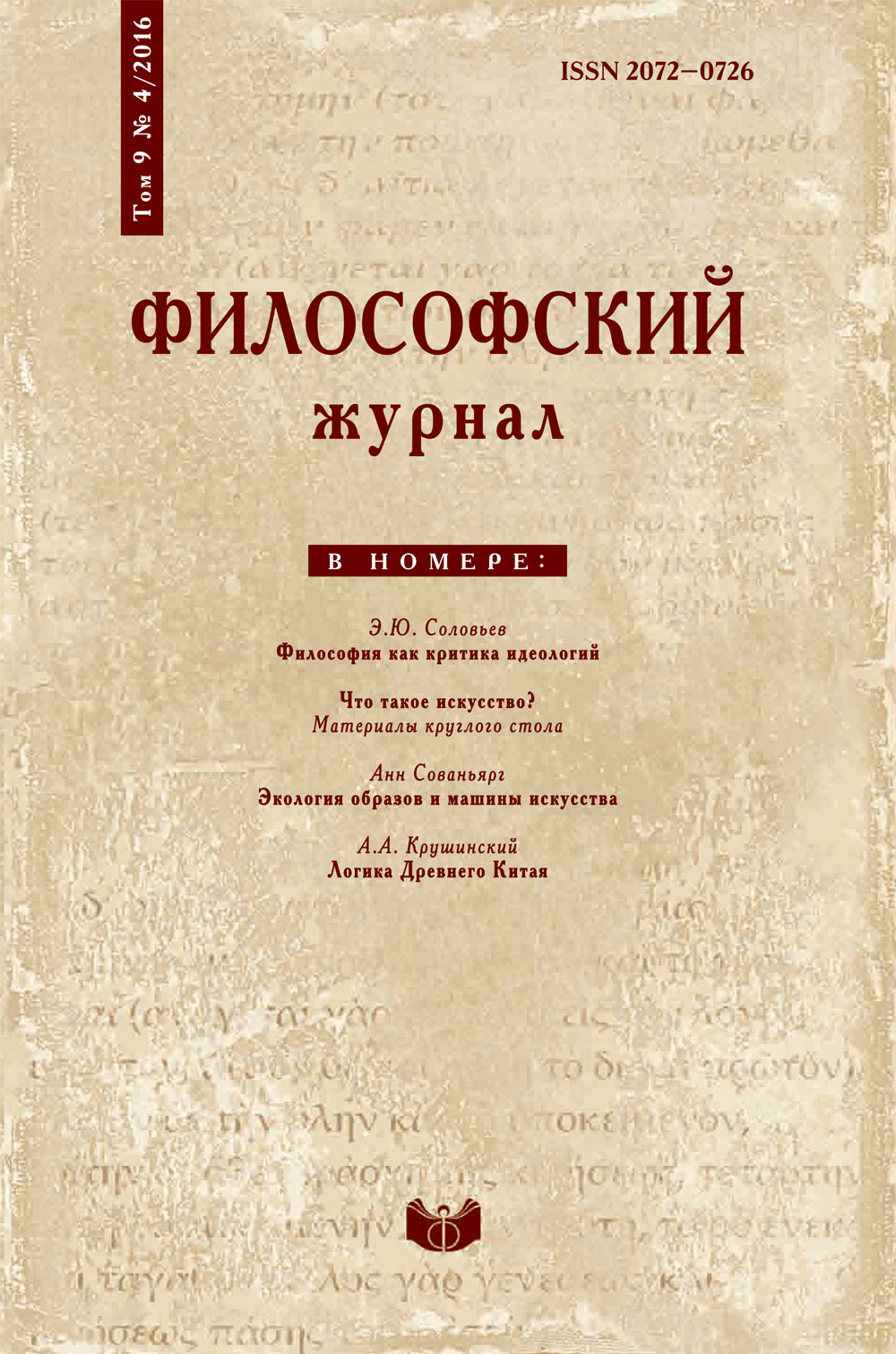Rectification of names: from grammar to a logic of social software
DOI:
https://doi.org/10.21146/2072-0726-2016-9-4-147-157Keywords:
rectification of names, social software, institute, ritual, evolutionarily stable strategy, correlated equilibrium, substantial formality, dynamic formalityAbstract
This paper provides an interpretation of the doctrine of ‘rectification of names’ (zhèng míng) as a grammatical and a logical principle of ancient China’s social software, i.e., a certain system of institutions and rituals that govern social interactions. This is achieved through a formal reconstruction of zhèng míng in the framework of evolutionary game theory and the theory of games with correlated equilibrium. The aim of zhèng míng is to constitute an ideal social software where the management system is so perfect that the mere naming of things ensures optimal interaction of all social agents by way of faultless choice of samples for replication. In game theory terms, one may say that the ‘rectification of names’ principle is designed to ensure harmony in the society be means of attaining correlated equilibrium. In this type of equilibrium, none of the interacting agents benefits by deviating from a strategy profile generated by a benevolent dictator. The role of such a collective benevolent dictator is assumed by the ancient sage kings who established the institute of correct names. The correct names, therefore, function as focal points, or as stable equilibria, selected by agents of social interactions on the basis of general knowledge. The rituals prescribed by the ancient sages are a common knowledge in ancient Chinese social software. So the adherence to ritual presumably ensures social harmony thanks to the coordinated execution of their roles by all the agents. Being a grammatical principle of the ancient Chinese social software, ‘rectification of names’ constitutes the institute of correct behavior. On the other hand, the strategic rules are traditionally studied in the framework of game theory. Their inclusion into the logical model of reasoning is an effect of the interactive turn in logic and a stimulus to switch its focus from constitutively correct to strategically perfect reasoning.






